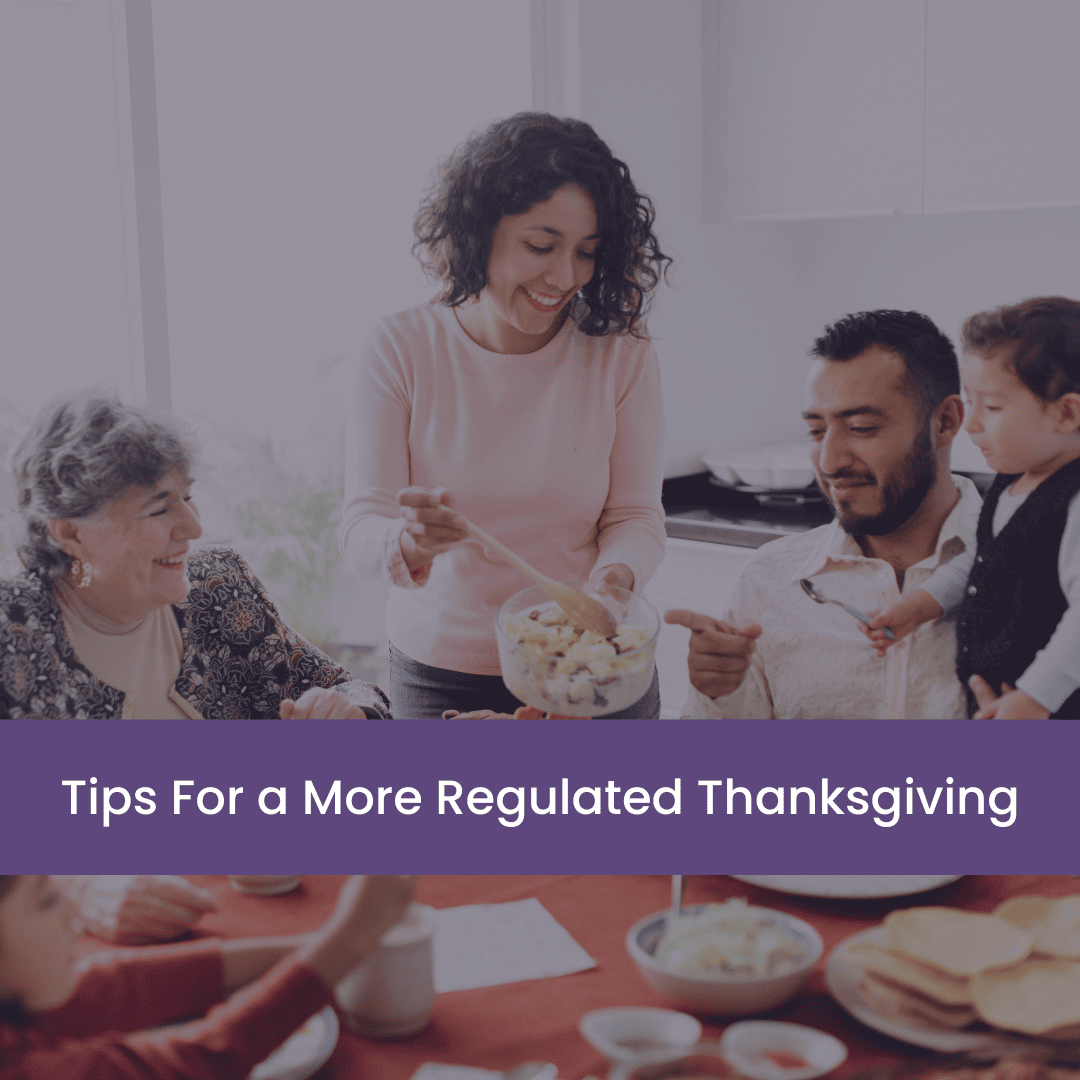by Ashley Bennett, Director of Trauma-Informed Care
‘Tis the season for gratitude, gift buying, turkey, and football! We’re entering the exciting holiday season but for many of us, we are doing it with a new kid in the mix! And not just any kid but one who brings with him into this holiday season his own experiences of grief and loss this year and his own unique needs. As we prepare for the routine change of Thanksgiving break, here’s a few things to keep in mind as foster & adoptive parents:
1. Make Space for Grief
In a season focused on gratitude and family togetherness, we can easily forget the reality that this time of year might find our children or us in a season of grieving. Let’s never overlook the fact that our new kiddo has gone through a lot this year and being separated from birth family members and experiencing this holiday season in our homes can bring about feelings of loss and grief or confusion. Some children express this grief inwardly and can come off reserved, withdrawn, quiet, or weepy. For others, expressions of grief can be outward focused and look like challenging behaviors such as control battles, aggression, and anger. It’s important to remember to see beyond the behaviors to the real hurt that lies below the surface.
Simply meeting our child where they are and bearing witness to their hurt is all we can do sometimes. There are not always quick fixes or solutions to what our children are going through. But it’s not just our new child that might be grieving the changes of this past year. Our family looks different than it did a year ago and with that change comes our own experiences of loss. Reminding ourselves of the ways in which we express our own feelings of grief and looking for it this season can help us to not be caught as much off guard when it shows up.
Bringing our lament to God or sharing our feelings with a safe person can help us process what we are experiencing as well. All we ever really want is to know we aren’t alone in our suffering and there are new mercies available to us when we reflect and bring them to our God who has been with us all year and sees both our family and our new kid.
2. Provide Predictability
With the changes that come with Thanksgiving break, it can be helpful to explain to your kids what the week will look like. Predictability disarms fear and anxieties and there are many ways to help provide that for your children. Verbally talk through any expected changes to their daily routines. Make a Thanksgiving break countdown. Create a written or visual schedule for holiday plans or those days off at home together. Overcommunicate about outings and gatherings: who will be there, what will we do, how long will we stay, what will we do when it’s over?
3. Have a Plan for Those Days Off School
For many of our kids (and actually us too!), a structured daily routine keeps us more regulated. Before Thanksgiving break begins, look at your schedule for the week and make some plans. Does your school or daycare offer childcare which might keep your child on a similar schedule? Can you invite a relative or friend to step in and fill some of the days? Is your respite family available to break up the holidays with an afternoon with your kiddos? What kind of more structured plan do you need to have for those days just at home together?
4. Be Mindful of Overstimulation
Holidays can be full of activities, outings, and large extended family gatherings and these can often be a bit much for our kids with sensitive nervous systems. If you are parenting a child with capital letter diagnosis (ADHD, ASD, SPD, etc.) or a child whose nervous system is still in protection mode, some of your traditional holiday plans might be a bit too much. So, ask yourself, what do we need to change this year in light of our new family?
What do we need to say “no” to for this year, what responsibilities do we need to give to another family member, what regulation strategies do we need to have in place for that large family gathering (weighted items, bag of fidgets, noise cancelling headphones, bubble gum, exit strategies, etc.)? What activities can we do successfully all together as a family and what might need to happen in smaller groups, one on one, or for just the parents? Give yourself permission to remove the shame and guilt and the “should” and do what you need to enjoy your week and keep everyone regulated.
5. Handle Food Issues with Sensitivity
Thanksgiving possibly might bring some new food tastes and textures to your child or some insecurities about where and when you’ll be eating. For most of us, we can go with the flow and enjoy change when it comes to food but for a child with food insecurities, not so much. The different eating times, locations, foods, and plans make their brain and body go into an alert protective state. You can help prevent this by talking to your child about food plans, giving them choices, allowing them to pack a “safe” snack or meal option to take with them, letting them eat something before the gathering so their stomachs are full and their brains regulated, and involving them in the food prep or cooking. All of these ideas can calm their nervous system and increase the chances of a more regulated holiday gathering!
Need more help navigating the holiday season? Restore Network families don’t forget you can access our free online training module, “Navigating the Holidays and Other Celebrations” at any time. Just email your Director for access.
